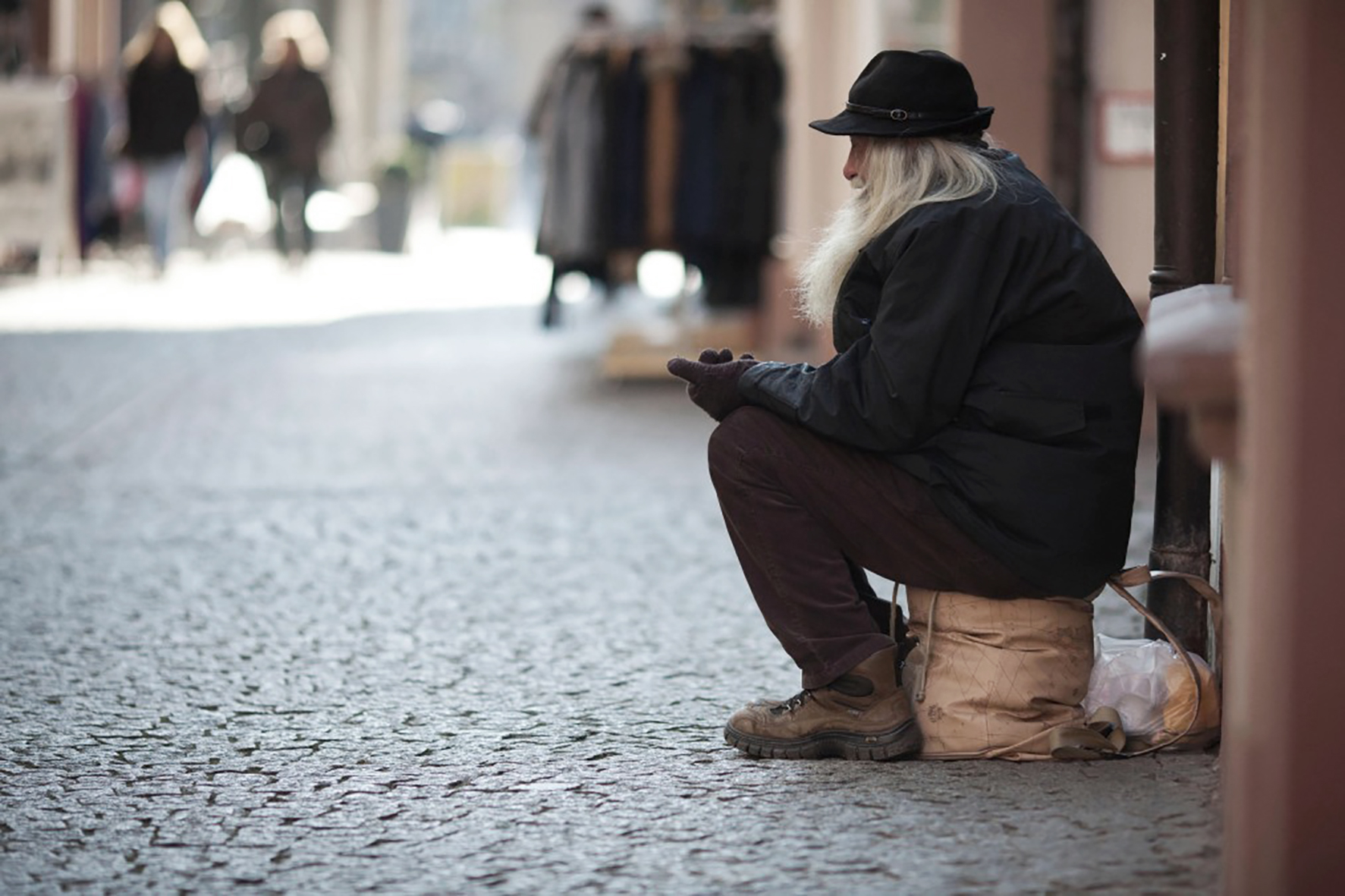Doors open to the homeless
A joint initiative of Caritas and local municipalities to house the poorest of the poor in the winter months, in many cases compulsive alcoholics, in the rich capital of the Grand Duchy. A welcoming, tolerant place, which does not renounce to assist people without a family or a home. It will be undergoing renovation works in April, but this fall the pub will reopen its doors, with longer opening hours. They will be needing staff and volunteers

There are homeless also in the green, vibrant city of Luxembourg. Even amidst the sparkling palaces of the richest Country in EU, temperatures fall below zero, in daytime and night time alike. For those without a home, the best way to have a feeling of warmth is to drink, wherever they are: outside shopping centres and stores, where sometimes it’s even possible to get a can of beer at a low price and snatch gushes of warm air, in public squares or in public gardens with companions in misfortune. Precise figures are lacking. However, according to estimates, some 250-300 people live on the streets of the capital of the Grand Duchy.
It takes “courage”. “For some time dormitories, as well as day centres, have been made available for them”, Ute Heinz, psychologist and responsible for emergencies Caritas, told SIR. “In all these places, however, it is forbidden to drink alcoholic beverages.
The problem is that 80% of those in this population-bracket are alcoholics.
For years we had been considering a safe place for the homeless where consumption “of wine or beer” could be allowed, obviously in moderate and controlled amounts.” A sort of refuge for the outcast among the outcast. Caritas’ concerns were welcomed by the municipality along with economic availability to support solutions to this social malaise and to citizens’ complaints. Thus, past November the “Bistrot le Courage” was inaugurated in a publically-owned building near the train station. It’s a small pub that can host up to thirty customers during the day. It shuts down at 7:00 p.m. At the counter it’s possible to be served water, tea, coffee, snacks; also a plate of hot soup three nights a week. Those who want a beer or some wine must bring their own drinks.
Three rules. “We expect nothing in return, but we have three rules: no physical or psychological violence; no drug consumption or trafficking, no spirits”, said Heinz, supervisor of the team of 5 workers who take shifts in the pub, professional social workers serving as bartenders. “We drew inspiration from the 15-year long experience of Germany with the Hempels Trinkräume in Kiel. The idea is to offer a protected place for those who have no other place to stay, for those excluded from all other services.” Moreover, the city offers therapy and addiction-rehabilitation services, but “ours is a centre for those who are far away from everything, for those with years-long chronic addictions.” “These people cannot be asked to change overnight. We can only try to stabilize them, to get in touch with them and accept them and their lives as they are, without forcing them to change.” Heinz explained: “I have been working in this field for years, and despite our many efforts some people will never change, so the only thing that can be done is to give them dignity, welcoming them just the way they are.” Authentic mercy. Indeed, Heinz remarked, “our staff is always available to respond to all those who voice specific needs: a doctor, a shower, a haircut, some time to talk. We give them what they ask for, but we ask for nothing in return, not even a social project or a path of rehabilitation from alcohol.”
Fully booked. The bistro has always been full during the winter months. There are those who enjoy reading, others play cards, some people doze off, others chat, and there are also some who drink heavily and then occasionally pick a fight. “Of course, sometimes clashes spark off between people who get drunk”, Mrs. Heinz said with no hesitation. “That’s why there are always three people on duty. In any case, if people are out in the cold, they drink more or faster; whereas here they feel warm and they tend to drink less.” This is not a bar attended by “normal” people, however, “the neighbours, shopkeepers, have come to visit us and asked information on our activity. When we told them they all welcomed the initiative.”
Many of them came to visit bringing sweets, decorations, and other things for our customers.”
In fact, in the month of November there have been less homeless in the streets, and this was greatly appreciated. Another specific feature of “Le courage”, Heinz said, is that “dogs are welcome. Many homeless people have a dog. We know of a couple who has always refused to enter another homeless centre because of their dog. But now that they can bring it with them they spend their days here with us. Thanks to our centre we have managed to attract people who had always shunned other places.” The pub has temporarily shut down since April, because the building must undergo renovation works, but it’s scheduled to reopen next fall with new areas for showers, washing-machines, a small medical office, a place to rest. Opening hours are likely to be extended, and more staff will be needed.